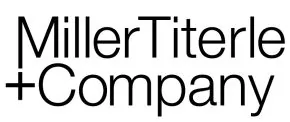Introduction
The recent Court of Appeal decision in Shalagin v. Mercer Celgar Limited Partnership, 2023 BCCA 373 ("Mercer") cautions employees about making surreptitious/secret recordings in the workplace. While an employee may record situations that are necessary to expose an injustice such as workplace bullying, the courts discourage the practice because it can foster distrust in the employment relationship and capture confidential and unrelated, personal information. Courts will look at the employee's conduct in making the recordings to determine whether the employer had cause to terminate.
Facts
In Shalagin v. Mercer Celgar Limited Partnership, 2022 BCSC 112, employee, Mr. Shalagin was terminated without cause by his employer, Mercer Celgar Limited Partnership (the "Company") on March 25, 2020. Subsequently, Mr. Shalagin filed a wrongful dismissal action at the BC Supreme Court ("BCSC") and a human rights complaint at the BC Human Rights Tribunal. As part of the human rights proceeding, Mr. Shalagin disclosed to the Company that he had secretly recorded over 130 conversations in the workplace throughout his almost 10 years of employment. Mr. Shalagin argued that he began recording conversations with management because his former supervisor allegedly bullied him. However, these recordings continued after the former supervisor left the Company. When the Company learned of these secret recordings post-termination, it changed Mr. Shalagin's without cause termination to a just cause termination. In legal discourse, this change in the characterization of termination is known as "after-acquire cause".
Test for Just Cause
In just cause termination cases, an employer must prove, on a balance of probabilities, that the employee's misconduct is of such a degree that it:
- violates an essential condition of the employment contract;
- breaches the trust/faith that is inherent in the working relationship; or
- is fundamentally or directly inconsistent with the employee's obligations to the employer.1
Typically, employers must provide corrective/progressive discipline to resolve the employee's misconduct before resorting to termination (e.g., written warning, then unpaid suspension), unless the employee's misconduct or incompetence is very serious.2 Some examples of very serious misconduct or incompetence sufficient to constitute just cause include theft of the employer's property, misconduct resulting in criminal charges, a pattern of acts resulting in a serious incident of insubordination, competing with the employer's business, sexual harassment in the workplace, out-of-work activities that cause the employer substantial harm (e.g., damage reputation, financial loss), and a pattern of gross incompetence.3
After-Acquired Cause
The test for after-acquired cause is the same as for just cause. However, courts apply after-acquired cause with caution, as it can result in employers fabricating allegations against their employee to justify the dismissal. When applying after-acquire cause, courts look to whether the employee's alleged misconduct during employment was something a reasonable employer could not be expected to overlook, having regard to the nature and circumstances of their employment. If the employer knew of the misconduct and explicitly or implicitly condoned it, then the employer's claim of after-acquired cause will fail.4
Application
In Shalagin v. Mercer Celgar Limited Partnership, 2022 BCSC 112, the BCSC considered whether a reasonable employer, taking into account all relevant circumstances, would believe that Mr. Shalagin's decision to record conversations, albeit legal, fundamentally ruptured the employee-employer relationship, such that the mutual trust between the parties was broken.5 The Court found that:
- There was no rational connection between the alleged bullying and Mr. Shalagin's recordings;
- Mr. Shalagin recorded not to protect his rights but to try to catch his superior or colleague saying something that would provide the basis for a future human rights complaint; and
- Mr. Shalagin's decision to record was underhanded, undermined the trust relationship with his employer, and violated the privacy interests of the people recorded and discussed in the recordings.
By making these recordings, Mr. Shalagin acted in a way that was incompatible with his employment duties, and it had the effect of irreparably damaging the relationship of trust with his employer. Thus, the BCSC found after-acquired cause could be applied.
Recordings in the Workplace
Mr. Shalagin appealed the BCSC decision, but the BC Court of Appeal ("BCCA") upheld the after-acquired cause decision of the BCSC.6 In coming to its decision, the BCCA highlighted important questions to consider (at paragraph 37) when determining whether an employee's secret recordings give an employer just cause to terminate:
- Did the employee know the recorded parties would be uncomfortable with the recordings, yet continue to make them?
- Did the recordings contain personal details about coworkers that were unrelated to the workplace?
- Did the employee's professional obligations or a workplace policy prohibit the employee from making recordings in the workplace (e.g., Chartered Professional Accountants of British Columbia Code of Conduct, workplace confidentiality policy)?
- Did the employee distribute or publish the recordings to anyone outside of the legal proceedings?
- Did the employee seek to make use of the recordings for their own benefit outside of legal proceedings?
- Did the employee act with malice in making the recordings?
- Did the recorded parties reasonably feel violated by the recording?
If these questions are answered in the affirmative, then an employer has a stronger case for a just cause dismissal of an employee that surreptitiously records conversations in the workplace.
Another case that provides insight into recordings in the workplace is the factually similar case of Rooney v GSL Chevrolet Cadillac Ltd., 2022 ABKB 813 ("Rooney"). In Rooney, the employee was dismissed and sued for wrongful dismissal. Post-termination, the employer learned that the employee had secretly recorded the employee's conversations with supervisors about the disciplinary actions the employer took against him and the changes to his role. However, the Court in Rooney found no after-acquired cause because, unlike in Mercer:
- The employer had no written policies that addressed recording conversations with fellow employees; and
- The employee only began recording after it became clear to him that his role was being materially changed and that he was being subjected to unwarranted disciplinary action.7
Takeaway
Taken together, the Mercer and Rooney decisions instruct employers on how to control the documentation of what occurs in their workplace and how to safeguard confidential information. Employers can prevent or limit employees from making unauthorized recordings in the workplace by:
- Developing a clear policy prohibiting the recording of other employees in the workplace;
- Bringing this policy to the attention of all employees; and
- If necessary, having an appropriate individual attend dismissals to take notes for the record.
Want More?
Employers, if you would like to discuss secret recordings in the workplace, after-acquired cause, or any other workplace issues, reach out to our MT+Co. Workplace Law Group.
For employees, the Mercer case serves as a warning that recordings taken in the workplace without your employer's or colleagues' consent may justify termination for just cause. Although you have a right, as an employee, to surreptitiously record in certain situations such as bullying and harassment, it is advisable to exercise caution. If you're an employee with inquiries about workplace recordings, please reach out to our MT+Co. Workplace Law Group.
Footnotes
1. McKinley v. BC Tel, 2001 SCC 38 at para 48.
2. Soma Ray-Ellis, "VII. Termination of the Employment Relationship: 6. Summary Dismissal for Just Cause" in Halsbury's Laws of Canada – Employment (2023 Reissue) (Online: LexisNexis, 2023).
3. Ibid.
4. Van den Boogaard v. Vancouver Pile Driving Ltd., 2014 BCCA 168 at para 33.
5. Shalagin v. Mercer Celgar Limited Partnership, 2022 BCSC 112 at para 52.
6. Shalagin v. Mercer Celgar Limited Partnership, 2023 BCCA 373.
7. Rooeny v GSL Chevrolet Cadillac Ltd., 2022 ABKB 813at paras 27, 90, and 91.
The content of this article is intended to provide a general guide to the subject matter. Specialist advice should be sought about your specific circumstances.


